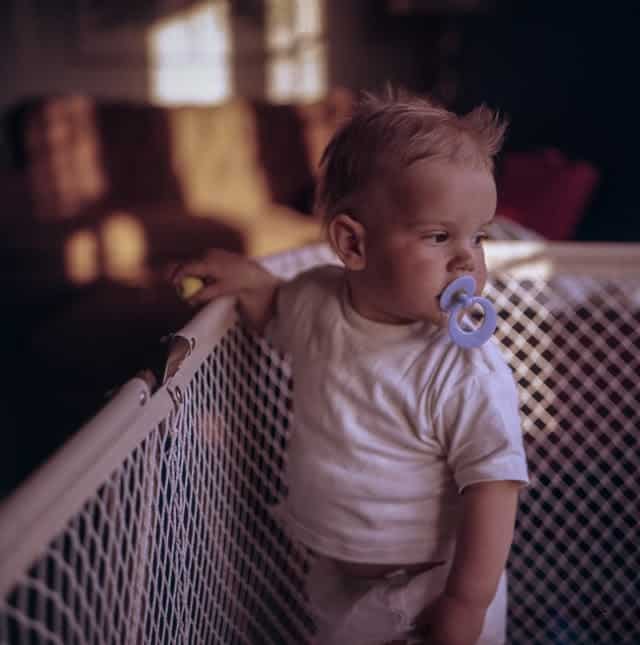
Monique Elario
IPSP Sleep Consultant
You have just got your baby on a great schedule, they are sleeping well and then all of a sudden their sleeping patterns start to change. If they are waking up more frequently at night, bedtime is becoming a battle and naps are getting shorter, then you might be dealing with a sleep regression.
Sleep regression is when your baby’s sleep patterns change and they have a difficult time going back to sleep.
Sleep regression happens due to physical and mental development and usually lasts 2-6 weeks. We can not prevent sleep regression, but with appropriate steps we can manage it.
We will share what changes in sleeping habits (and when) parents can expect with their baby in the first 2 years and how to manage it.
What is sleep regression?
Sleep regression is defined as a period of time, usually 2-6 weeks, where your once well sleeping child is now having short naps, fights bedtime, starts waking frequently during the night or, all of the sudden, is awake for long periods of 1-2 hours at night.[1]
Sleep regressions normally occur when your baby is going through a physical or developmental milestone. You may notice a change in your child’s sleep when a new skill is being developed or learned.
These new skills, which we discussed further below, may bring on a regression in your child’s sleep but it is a progression in their development.
Sleep regressions are not to be confused with other phases that your baby could be going through that also cause temporary sleep disruptions.
These can be teething, growth spurts, arrival of a new baby, nap transition and
sickness.
What causes sleep regressions in babies?
Sleep regressions can be caused by a physical or developmental milestone. Here is a list of the most common reasons that babies go through a sleep regression:
- Rolling
- Crawling
- Standing
- Cruising
- Walking
- Language acquisition
- Separation anxiety
There is so much development going on in your baby’s brain that they want to be practicing their new found skills at a time they should be sleeping.[2]
Sleeping behavior of babies up to 1 year
In the first year of your baby’s life, their sleep behaviors and habits will change considerably. Sleep regressions happen around the same stages in a baby’s life as this is linked to physical and mental development.
3-5 month regression
This regression brings on permanent changes to your baby’s sleep patterns and their sleep patterns become more defined. Your baby may also start learning how to roll and they could find themselves in uncomfortable positions which could cause night wakings.
The 3 month growth spurt can bring on extra night wakings as the baby may need more night feeds at this stage.[2]
5-7 month regression
Your baby may go through another growth spurt which could mean more day and night feeds. These growth spurts tend to last around 4-7 days.
Teeth also start to make an appearance and that can be uncomfortable and painful for your baby, ultimately causing them to have short naps or wake frequently at night. Your baby may also be showing signs of sitting, especially when they are laid down to sleep.[2]
7-9 month regression
Many babies start crawling or standing and pulling themselves up when laid down to sleep. Separation anxiety and object permanence start to appear and your baby may have difficulties falling asleep and staying asleep. Also, they may wake up at night missing you and may call out to you for reassurance.[2]
11-12 month regression
At the 1-year mark, your baby may be going through tremendous physical changes such as learning to walk or even climb as well as language acquisition.
At this age, babies also start testing parents to see what they can get away with and they may start to refuse nap times and bedtimes.[2]
Signs of sleep regression
Common signs of sleep regression include:
- Baby flat out refuses to nap
- Naps are getting shorter (20-40 minutes long)
- Baby is fighting bedtime and taking a long time to settle
- Baby is experiencing frequent night wakings
- Baby is having early morning wake ups from 4-5am
- Baby stays awake for 1-2 hours at night.
As all babies are different, they will experience the regressions (slightly) differently too.
When to expect sleep regressions to happen?
Sleep regression tends to typically occur around these ages of 4 months, 9 months, 12 months, 15-18 months and 2 years.
These are general time frames and your baby could experience these regressions at any age around or within this time frame.
For instance, I often see the 9 month regression start as early as 7 months and as late as 10 months.
Once a baby masters the new found skills that they are currently learning, such as rolling, sitting, crawling, standing, walking or talking, then the regression passes and they go back to their normal sleeping patterns.
How long does sleep regression last?
Regressions last a few weeks at a time, which is usually between 2-6 weeks. This depends greatly on how long it takes your baby to master their new skill.
Sleep regression and separation anxiety
At around 9 months babies start to develop a sense of object permanence. This means that they now realise that something exists even if it isn’t in sight.

Your baby may experience difficulty in falling asleep and staying asleep at bedtime and they may wake up at night looking for their parents or caregiver.
Separation anxiety can also look like your baby clinging to you, getting upset when you leave the room or it shows up when you hand your baby over to the daycare or babysitter for the day.
To ease the steps of separation anxiety, you can stay in the baby’s room for a few nights until they fall asleep. Offer a lot of one-on-one time especially before bedtime, more comforting and reassurance at bedtime, naptime and night wakings.
Do these by stroking your baby’s face, patting or rocking their tummy, and using your voice to reassure them that you are close by.
Can we prevent sleep regressions?
There is no magical solution to prevent sleep regressions. Your baby needs to go through what they are going through as this is a normal part of their growth and development.
Tips for managing a sleep regression
There are ways that we can manage sleep regression to make this phase more comfortable for you and your baby.
- Give your baby plenty of opportunities to practice the new skills during the day. Once your baby has mastered the new found skill, the regression will pass.
- When your baby wakes up at night, go in and offer intermittent comfort and support them with a gentle tummy or face stroking. Use your voice and words for verbal reassurance. Once the baby is asleep again, you can decide if you want to stay or leave the room.
- Don’t introduce any new sleep habits. Allow your baby to use their self settling skills to fall asleep.
- Stick with your usual day schedule and still offer your baby their naps.
- If your baby has had a sequence of short naps or refused naps on a particular day, then they may need an earlier bedtime to prevent overtiredness.
- Keep with your consistent and calming bedtime routine.
After her daughter Tori was born, having a good night’s sleep was quite a challenge for Monique. With Tori’s brief naps during the day, Monique had spent every waking hour next to her, holding her hand, to ensure that Tori would be sleeping. Exhaustion and lack of sleep for Monique and her husband had become an everyday occurrence.
It was due to these struggles that Monique decided to research and know everything there is about paediatric sleep. Knowing that other parents were going through the same struggles, she decided to use her experience and help other sleep-deprived families. Today, Monique’s passion is to create healthy sleep habits for families in a way that feels good to them. For more details, please visit sleepingbabyhappymom.com
References
(1) The Baby Sleep Site – Baby sleep patterns – sleep regressions https://www.babysleepsite.com/baby-sleep-patterns/sleep-regressions/
(2) Institute of Pediatric Sleep and Parenting Violet Giannone https://instituteofpediatricsleep.com/






